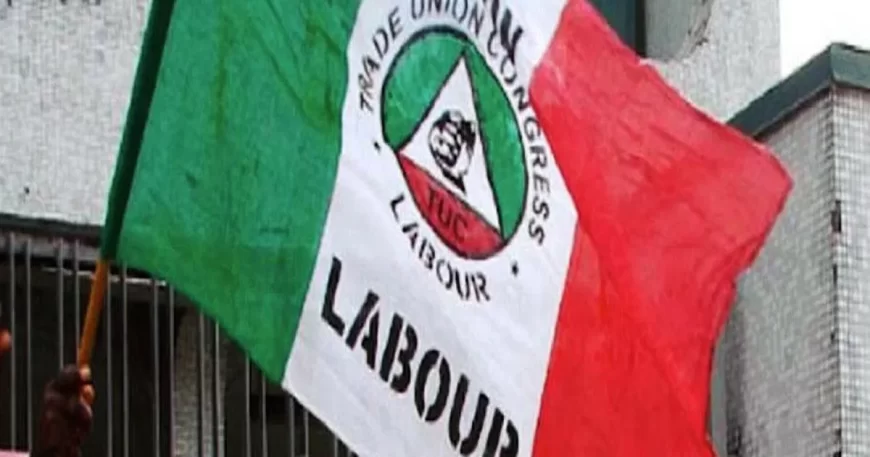When capitalism entered its highest stage of imperialism, Western European powers held a historic or if you prefer infamous conference in Berlin, Germany in 1885 and partitioned Africa thereby bringing the vast area now known as Nigeria under the domination of Great Britain. Consequently, Britain imposed peripheral capitalist economic system in Nigeria and the contradiction inherent in capitalism simultaneously reproduced itself in the country workers started to agitate to improve the slavery wage unleashed on them.
Studies have shown that a Mechanic Mutual Aid Provident and Improvement Association was formed in 1893 and that in 1897 it called out employees of Public Works on a three day strike to press for shorter working hours. In 1905, Association of Civil Service Clerks also came into existence but fizzled out. Eventually, the Southern Nigeria Civil Service Union was formed on 19th August 1912 with 33 workers attending the inaugural meeting. After the 1914 amalgamation of Southern and Northern protectorate, the Association in 1919 assumed the name of Nigeria Civil Service Union.
It is noteworthy that the formation of Southern Nigeria Civil Service Union was spearheaded by a Sierra Leonian, Mr H. Libert, who was transferred from his country to Nigeria as an employee of British West Africa Civil Service. There were other workers from Gold Coast (Ghana), Liberia and India who already had experience in trade unionism. Other unions later sprang up and they all started to agitate for improved working conditions. The imperialist government reacted by issuing the General Defence Regulations in 1941 part of which outlawed strike. And in Nov. 1949, more than 20 miners were murdered by the colonial government which dispatched armed agents to Iva valley mine in Enugu to dislodge miners who were protesting non-payment of arrears to hewers.
Since then, consecutive governments have issued various laws to subdue workers and their trade unions. In 1963, the demand for the change of colonial wage structure brought the
unions into direct confrontation with neo-colonial regime of Tafawa Balewa which responded by sacking 10,000 civil servants in Lagos. General Yakubu Gowon in 1973 enacted Decree 31forbidding merger of house unions in order to weaken them. The military junta of General Olusegun Obasanjo in 1977 promulgated Trade Unions (Disqualifications of Persons) Decree 15 which banned Labour Leader N0.1, Micheal Imoudu, Wahab Goodluck, M. j. Sule, etc from trade unionism. It also issued Decree 22 of 1978 that divided the workers into senior and junior, fused the existing four labour centers namely Nigeria Trade Union Congress, Labour Unity Front, Nigerian Workers Council and United Labour Congress into one central organization: the Nigeria Labour Congress, to prepare grounds for easy annexation of the workers organization by the military.
Apart from issuing decrees to keep the trade unions in chains, the military junta of General Ibrahim Babangida in 1988 ordered armed security agents to forcefully occupy the Nigeria Labour Congress and dissolved its executive. This scenario was repeated in 1994 when the military junta of late General Sani Abacha seized the NLC secretariat in Lagos, dissolved its executive and proscribed the National Union of Petroleum and Natural Gas Workers and the Petroleum and Natural Gas Senior Staff Association of Nigeria. In 1984 General Muhammadu Buhari junta enacted Decree 17 of 1984 which empowered the government to dismiss workers without reason.
In warming its way to the heart of workers, General Abdulsalami Abubakar junta on assuming office and after some measure of pressure from the Trade Unions abrogated obnoxious Decrees 9 and 10 of 1994, Decrees 4,6 and 29 of 1996 promulgated by Abacha. Since the return of democracy in 1999, Trade Unions in Nigeria have continued to campaign and struggle to improve the living conditions of workers.
From the preceding, Trade Unions can be defined as organizations of workers who possessing no means of production are compelled to work for the capitalists who own the means of production or in their institutional superstructures and this condition necessarily impel the workers to engage in constant struggle sometimes violently at the workplace with the capitalists to improve working condition and at the political terrain to control political power with which to reconstruct the society and free themselves and the entire society from all forms of exploitation. As at today, there are two labour centres in Nigeria namely the Nigeria Labour Congress (NLC) and the Trade Union Congress of Nigeria (TUC). While the TUC is an umbrella body for all Senior Staff Associations in the country, the NLC is the Labour Centre for junior workers unions. The employer groups operating under the umbrella of Nigeria Employers Consultative Association (NECA) is also known as a Trade Union.




